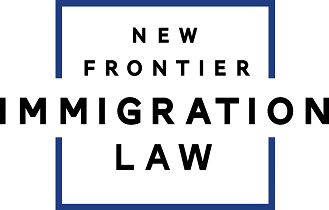
You may want to know what the NVC Backlog is. The National Visa Center (NVC) Backlog refers to the accumulation of immigrant visa applications awaiting processing and interview scheduling. Due to the increased number of cases, delays at the NVC have affected many immigrant visa applicants, leading to extended waiting times for visa interviews.
The backlog is influenced by various factors, including limited resources and processing delays at U.S. embassies and consulates. A Phoenix immigration lawyer can explain how the NVC backlog affects multiple types of immigrant visas and help you understand your rights and options.
Introduction to the National Visa Center (NVC)
The National Visa Center (NVC) plays a vital role in the U.S. immigration process. Managed by the U.S. Department of State, the NVC is responsible for handling immigrant visa applications after they are approved by U.S. Citizenship and Immigration Services (USCIS).
The NVC deals with various types of visa categories, including family-based and employment-based immigrant visas. Its primary tasks include:
- Creating visa case files
- Reviewing required documents such as birth certificates and marriage certificates
- Ensuring applicants meet the requirements for their specific visa type
- Coordinating immigrant visa interviews with consular offices
Unfortunately, the NVC has faced significant delays in recent years due to factors like the immigrant visa backlog, which was worsened by pandemic-related disruptions and limited resources. This backlog can affect immigrant visa applicants by extending their wait times for an interview, slowing down the immigration process, and increasing the burden on applicants to submit additional documentation.
For a free case review with an Immigration lawyer, call
What Are the Reasons for the National Visa Center (NVC) Backlog?
The National Visa Center (NVC) backlog has several contributing factors that have led to a significant increase in immigrant visa applications awaiting processing. Understanding these reasons can help immigrant visa applicants and their families cope with the delays they may be facing.
One major factor is the impact of the COVID-19 pandemic. Many consular offices around the world were forced to close or limit their services, leading to a backlog of immigrant visa petitions that could not be processed. Even as most of those services have resumed, many embassies and consulates are still working to catch up with the growing number of cases.
Other reasons for the backlog include:
- Limited capacity for visa interviews: With health protocols in place, Visa and naturalization interview appointments are fewer, making it harder for applicants to get the necessary interviews for their visas.
- Increased demand for visas: The number of people applying for family-based and employment-based visas has risen. This increase is due to many individuals wanting to reunite with family members or seek work opportunities in the U.S.
- Complex application processes: Applicants often face challenges in submitting complete and correct documentation, leading to delays in processing times and an accumulation of cases in the backlog.
- Inefficiencies in appointment scheduling: Many applicants find it difficult to schedule interview appointments, resulting in longer wait times and added frustration.
The combination of these factors has created a difficult situation for many immigrant visa applicants, leading to extended waiting periods for their cases to be resolved. If you are facing challenges due to the NVC backlog, it may be beneficial to seek assistance from an immigration lawyer to explore your options and rights.
What to Do if My Case Is Delayed Due to the NVC Backlog?
If your immigration case is delayed due to the National Visa Center (NVC) backlog, it is important to know that you are not alone. Many immigrant visa applicants are experiencing similar challenges as they wait for their immigrant visa petitions to be processed. Here are some steps you can take to address the delay and help improve your situation:
- Stay informed: Regularly check the U.S. Department of State website for updates on processing times and any changes related to the NVC. Knowing the current immigrant visa backlog levels can help you understand where your case stands in the overall process.
- Review your application: Double-check your submitted documents to ensure that everything is complete and accurate. Missing or incorrect information can lead to further delays.
- Consult an immigration lawyer: If you are feeling overwhelmed, it may be helpful to talk to an immigration lawyer. They can provide guidance on your specific situation and explain your rights and options. This can be especially useful if you need to address issues with your immigrant visa interview or understand how to respond to any requests for evidence.
- Join support groups: Connecting with others who are facing similar delays can be comforting. Consider joining online forums or support groups focused on immigration issues. Sharing experiences and tips with fellow applicants can provide emotional support and helpful resources.
Delays in the immigration process can be frustrating and stressful. Taking proactive steps to stay informed and seek assistance can help you manage your situation better. Remember that patience is important, and knowing what actions you can take can provide a sense of control during this difficult time.
Our immigration lawyers
Talk to an Immigration Lawyer to Understand Your Immigration Options and Rights
Dealing with the NVC backlog can be overwhelming, especially when your immigration case is time-sensitive. If you are unsure about how the backlog affects your situation or what steps you should take next, consult one of our experienced immigration lawyers at New Frontier, who can provide you with guidance.
An attorney can explain how the backlog applies to your specific case and discuss options to address delays, such as requesting expedited processing in certain circumstances or exploring alternative visa paths. Contact our experienced immigration lawyers today to understand your rights and find a viable option for your case.






